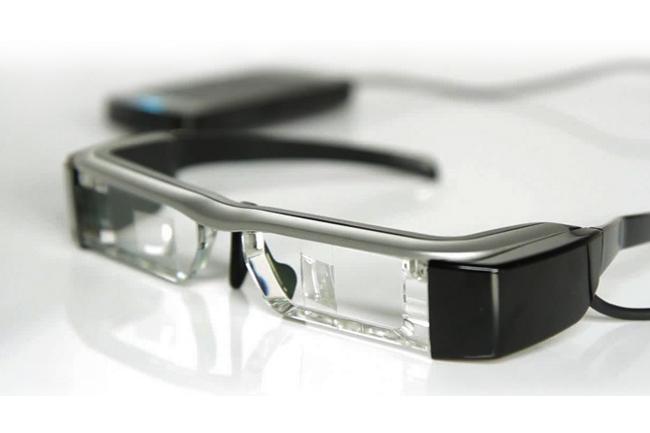
While Google continues to roll out monthly updates for its not-yet-launched face-based Glass gadget, a company better known for printers than high-tech specs is already onto the second iteration of its smart glasses.
Epson entered the wearable tech space around a year ago with its BT-100 smart specs, though admittedly the device hardly took the market by storm. Undeterred, its designers have been busy working on the next iteration of the product, unveiling the Moverio BT-200 Smart Glasses at CES in January.

Android what?
While its Android 4.0 OS may leave some wondering if Epson realizes Google has in fact released a few more versions of its mobile operating system since, the specs may be of interest to some who missed out on Google’s recent one-day sale and haven’t the patience to sit around waiting to see if the Mountain View company is ever actually going to give its device a commercial release.
Espon’s effort features a binocular display with an LCD-based projection lens system, allowing users to view content front and center on “a ‘floating’ 80-inch perceived screen.”
It also comes with a front-facing camera and a magnetic compass to support head-motion tracking and hands-free navigation. Built-in Wi-Fi, Bluetooth 3.0 support, Dolby Digital Plus sound, and wireless mirroring (allowing you to stream to a big screen) are also part of the package, as is an incorporated gyroscope and accelerometer. Notable is its removable storage (microSDHC) and battery.
Epson seems to be aiming its specs more at industry than the general consumer market, citing “retail and wholesale supply chain tracking, surgical training for doctors in the operating room, and remote field service support for complex repair assistance” as possible uses.
It’s likely a number potential buyers will be put off by the fact that some of the device’s functionality comes via a trackpad about the size of a smartphone. And if the idea of carrying around this extra device to get the most out of Moverio isn’t bad enough, it connects to the specs via a cord, making it look more like a prototype device than a market-ready gadget.
And let’s be honest, with its bulky sides and that cord hanging off, many will be left feeling a little disappointed with the overall look of the gadget. Still, at less than half the cost of what Google is charging those joining its Glass-testing Explorer program, Moverio’s $700 price tag may work for some. Truth be told, it’s great to see other companies moving ahead with Glass competitors in a market that’s still very much finding its feet. Epson hasn’t quite nailed it with its latest effort, but compared to its first try, it’s most definitely a step in the right direction.
[Source: Epson]


